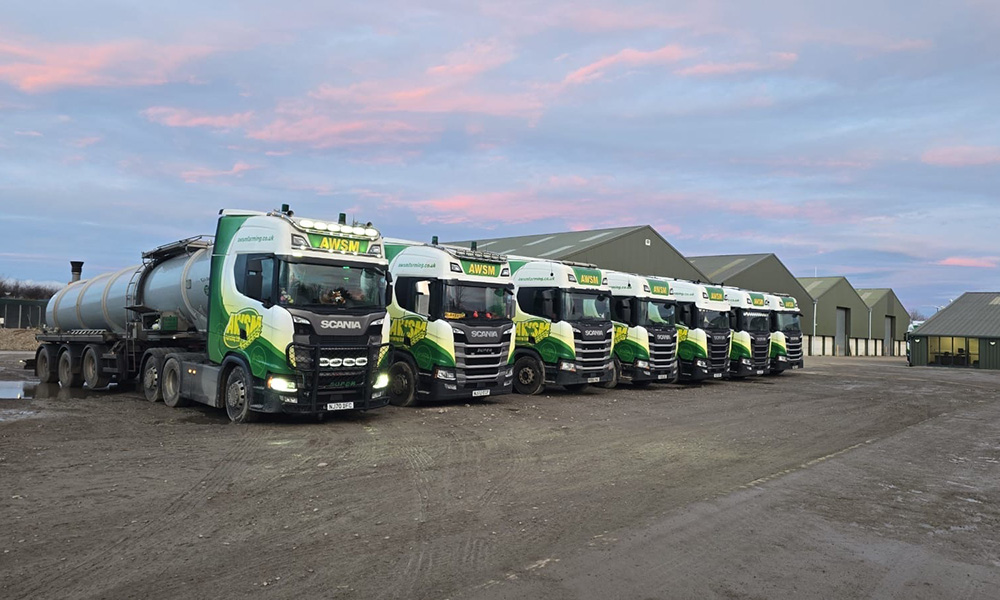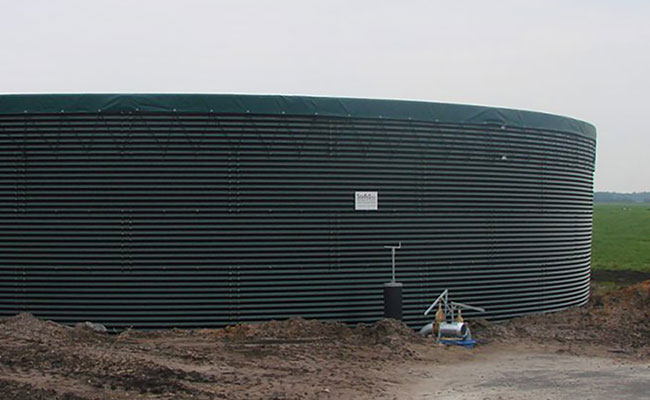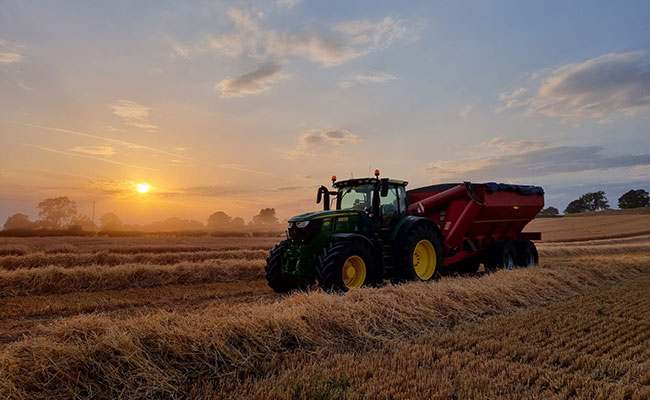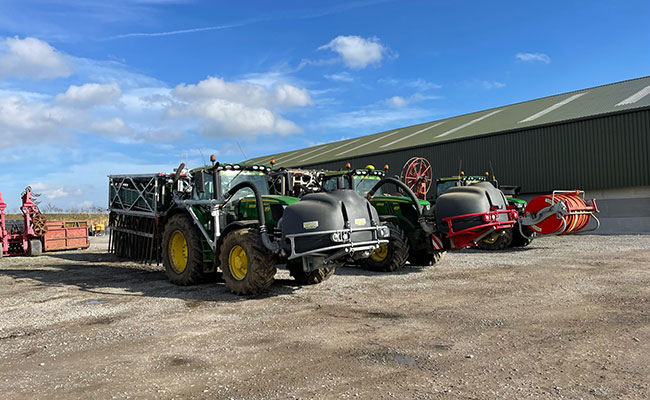2023 Farm Contractor Labour Shortage: What You Need to Know

In the supermarket aisles, you might have noticed the absence of certain products, a subtle reminder of the challenges gripping the agricultural industry.
The repercussions of this labour shortage extend far beyond the fields, impacting farmers and farming contracting businesses nationwide.
The Department of Environmental Rural Affairs (DEFRA) recently revealed their findings into the current agricultural landscape – from workforce numbers to solutions to address the issue.
Here we’re looking at understanding the contractor labour shortage, what DEFRA’s report tells us and how the industry should adapt to these issues.
Understanding the 2023 Farm Contractor Labour Shortage
Ensuring we have enough workers, both permanent and seasonal, is essential to maintaining domestic food security and providing British consumers with high quality food. But without the workers to facilitate the yearly harvest, the food supply chain is scarce.
But what’s causing this issue?
Two significant forces, the aftermath of Brexit following the end of the Transition Period and the enduring impacts of the COVID-19 pandemic, have both played pivotal roles in the labour shortage saga.
Pairing this with the general farm worker demanding higher wages from their employers, many farms just don’t have the capacity to run their business as efficiently as they once did.
A 2016 report by the Agriculture and Horticulture Development Board (AHDB) suggests that in 2015, 20% of the permanent workforce in agriculture and horticulture were EU nationals.
However, leaving the EU brought forward a new immigration policy, which led to the UK losing skilled labour across the board, particularly in the agricultural industry.
Why is there a shortage of farm contractors in 2023?
The shortage of farm contractors in 2023 can be attributed to a combination of factors. Key contributors include the aftermath of Brexit, which led to changes in immigration policies affecting the availability of skilled labour, and the ongoing impact of the COVID-19 pandemic, which disrupted workforce dynamics. Additionally, competition from other industries for skilled workers has further strained the availability of farm contractors.
What are the implications of the farm contractor shortage on the agricultural industry?
The shortage of farm contractors has significant implications for the agricultural industry. It can lead to reduced food production, crop wastage, and delays in critical farming operations. This, in turn, may impact the availability and affordability of food for consumers.
Following this, a survey from the National Farmers’ Union (NFU) highlights the detrimental effects this is having, not just to business, but to wastage. A staggering 41% of respondents had to reduce their food production due to an inability to secure the essential workforce required.
The NFU warns that food is going to waste because there simply aren’t enough hands to harvest it.
DEFRA’s survey around the labour shortage in the agricultural sector
The DEFRA ‘Independent Review into Labour Shortages in the Food Supply Chain’ is a meticulous examination of the labour dynamics within the agricultural sector, shedding light on the shortages of today.
Within the pages of this report lie eye-opening statistics. The UK experienced record-low unemployment rates of 3.7% in December 2022 overall, while seeing a steady decline in its agricultural workforce over the past two decades.
How is DEFRA addressing the issue of skilled labour in farming?
DEFRA has proposed several strategies to address the issue of skilled labour in farming. These include widening the eligibility criteria for Skilled Worker visas to encompass lower-skilled roles, investing in training and development for UK-domiciled staff to improve retention, and reforming the Apprenticeship Levy to create a highly skilled workforce.
In the year 2000, the review reports that around 557 workers worked in agriculture. Fast forward to 2010, and that number dwindled to 424 workers, further reducing to 429 by 2021. A decade-long depletion that paints a concerning picture of our labour resources.
Experts in agricultural contracting services
Looking for an extra pair of hands? Trust AWSM for expert agricultural contracting services!
Get in touch!The competition for skilled labour isn’t solely within the agricultural industry; other sectors also beckon, vying for capable hands.
However, the seismic shift brought about by the UK’s exit from the EU bears a significant brunt of the blame. The departure from the EU has effectively reduced the pool of available EU workers.
Plus, the competition for skilled labour isn’t solely within the agricultural industry, other sectors are also crying out for capable hands. As touched upon, this is attributable to the UK leaving the EU, reducing the pool of available EU workers.
Bridging the Gap: UK / NZ partnership
To help solve the skills shortages, The National Association of Agricultural Contractors (NAAC) and Rural Contractors New Zealand Inc (RCNZ) have partnered to develop a labour exchange programme.

Farming is very much a seasonal activity, and the workers down under experience a different peak season to us, making a labour exchange a brilliant idea.
The UK is welcoming in workers – aged between 18 and 35 – on a potential 24 month working visa, as part of the Youth Mobility Scheme.
Similarly, for British workers seeking an adventure and a chance to bolster their skills, they can go work over in New Zealand to experience a different farming landscape and contribute to the global agricultural community. The scheme presents a golden opportunity to benefit both businesses and employees alike.
As the New Zealand farming season looms on the horizon, this is an opportune moment for UK workers to secure a visa and embark on this cross-continental journey in October.
Adapting to the Labour Challenges Faced by Farmers
The DEFRA report offers not just insight but a roadmap to solutions for farmers adapting to the challenges.
The report underscores the critical importance of government intervention. Here’s a few highlights:
Skilled worker eligibility
It suggests widening the eligibility criteria for the Skilled Worker visa route. This expansion would encompass roles currently categorised as lower-skilled or reclassify them to render them eligible.
By doing so, the industry can access a broader pool of talent, addressing the immediate labour needs.
Investing in retention
Retaining skilled workers is as vital as recruiting them, and the DEFRA report emphasises this point. Businesses are encouraged to take a proactive approach by providing clear training and career development plans for their staff.
This isn’t just an expenditure but an investment in the workforce. The training and education should strike a balance, focusing on skills that are flexible yet specific to the food supply chain sector. This targeted approach aims to enhance retention within the sector.
Rethinking the Apprenticeship Levy
The report shines a spotlight on the Apprenticeship Levy, acknowledging its potential to enhance the skills of the workforce. However, to tackle the labour shortage head-on, a more radical overhaul is suggested.
The Levy needs to evolve to cultivate a highly skilled workforce capable of meeting the evolving needs of the sector while safeguarding its supply in the long term.
To bring about meaningful change, the government must embrace a flexible approach that incorporates a wider range of training and education. This should be coupled with a simplified application process.
The funding should be flexible, enabling the development of training materials and capital funding resources for future skills requirements, including those needed for advanced agricultural equipment.
How can farmers cope with the labour shortage?
Farmers can cope with the labour shortage by exploring various strategies. These include partnering with agricultural contractors like AWSM, which can provide machinery and services to fill the labour gap. Farmers can also invest in training and retaining their existing workforce, explore new technologies and automation to streamline operations, and consider participating in labour exchange programs or visa schemes that allow access to skilled workers from other countries.
What are the advantages of hiring agricultural contractors?
Hiring agricultural contractors offers several advantages for farmers facing labour shortages. Contractors bring specialised skills and equipment to the table, ensuring that farm operations are carried out efficiently and professionally. This can lead to increased productivity, cost savings, and reduced downtime. Additionally, contractors can provide flexible solutions tailored to the specific needs of the farm, helping farmers adapt to changing circumstances and labour challenges effectively.
Your trusted partner
From providing access to cutting-edge machinery to offering essential services like crop spraying, baling, combining, cultivation, and more, AWSM is your trusted partner in navigating these labour challenges.
Our team of skilled professionals is equipped to step in, ensuring that your farm operations continue seamlessly, even in the absence of skilled labour. Want to chat about your business? Get in touch today.





